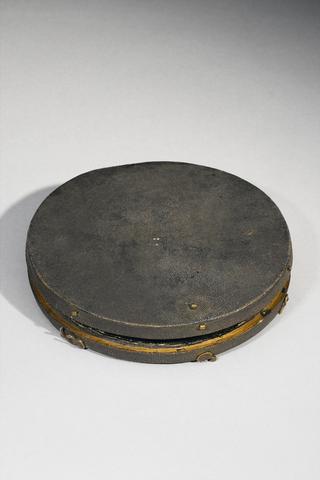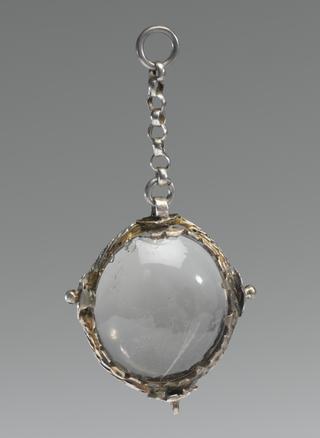
John Dee 1527 - 1609
- occupation:
- Antiquary, Astrologer, Mathematician
- Nationality:
- English
John Dee was born in London and educated at a school in Chelmsford, Essex. He entered St. John's College, Cambridge, in 1542, and was made a fellow of Trinity College on its founding in 1546. Dee furthered his scientific studies by travelling in continental Europe between 1547 and 1551 to study with the mathematician-cartographers Gemma Frisius and Gerard Mercator. Dee turned down a mathematical professorship at the University of Paris in 1551 and a similar position at the University of Oxford in 1554. He hoped, instead, to obtain an official position at the English court.
On his return to England, Dee attached himself to the royal court. He offered instruction in the mathematical sciences to both courtiers and navigators, having brought back navigational instruments. In 1555, he began preparing nautical information and, later, navigation charts for the Muscovy Company. He became astrologer to Queen Mary I and was imprisoned for being a conjurer, although he was soon released. Following the ascension of Elizabeth I to the throne in 1558, Dee became her scientific and medical adviser.
By the mid-1560s, he had built a laboratory at Mortlake, near London, where he amassed the largest private library in England with over 4,000 books. Dee was generous in making his library accessible to scholars and in assisting the many practitioners who applied for advice. He was closely involved in laying the groundwork for several English voyages of exploration. He instructed captains and pilots in the principles of mathematical navigation, prepared maps for their use, and furnished them with navigational instruments. He was equally active in publicly advocating a British empire in Perfect Arte of Navigation (1580). In 1582, Dee also recommended that England adopt the Gregorian calendar, but the Church refused to embrace such a ‘popish’ innovation.
Dee's scientific interests were far broader than his involvement in English exploration might suggest. In editing the first English translation of Euclid's Elements (1570), Dee added an influential preface that proclaimed the dignity and usefulness of the mathematical sciences. Furthermore, as passionately as he believed in the utility of mathematics for everyday matters, Dee expressed conviction in the occult power of mathematics to reveal divine mysteries.
Later in his career, Dee became interested in alchemy. Perhaps frustrated about his failure to arrive at a comprehensive understanding of natural knowledge, Dee sought divine assistance by conversing with angels. He and his medium, the convicted counterfeiter Edward Kelley, held numerous séances both in England and in continental Europe, where the two travelled together between 1583 and 1589. By all accounts Dee was sincere, which is more than can be said for Kelley, who may have duped him. On Dee's return to England, his friends raised money for him and interceded on his behalf with Queen Elizabeth. Though she appointed him Warden of Manchester College in 1596, Dee's final years were marked by poverty and isolation. His wife Jane and eight children had died (as did the Queen in 1603). Dee returned to London and is believed to have died in December 1608. It is almost certain that William Shakespeare modelled the character of Prospero in The Tempest (1611) on John Dee, the Elizabethan magus.

